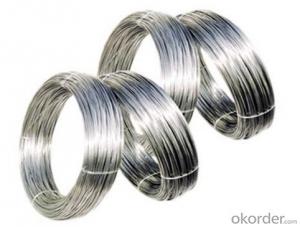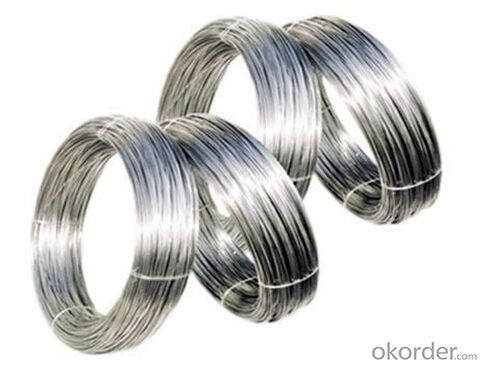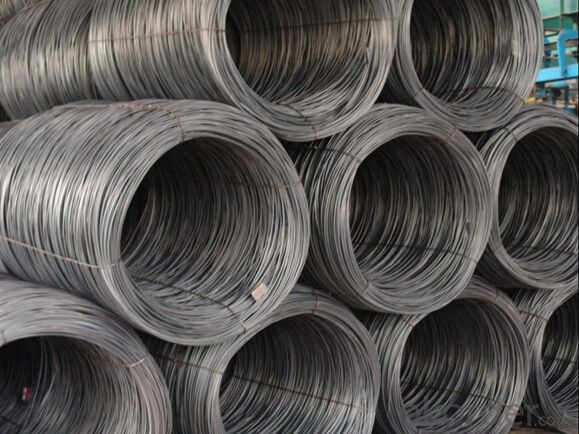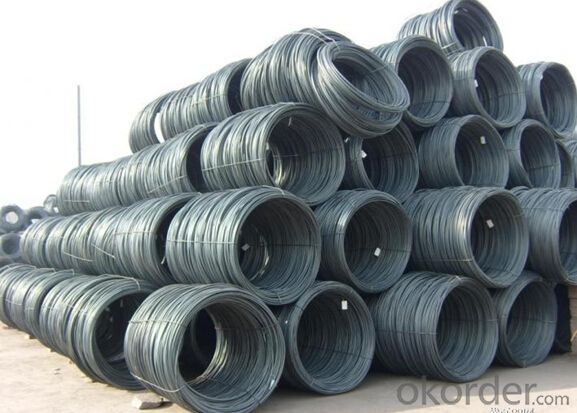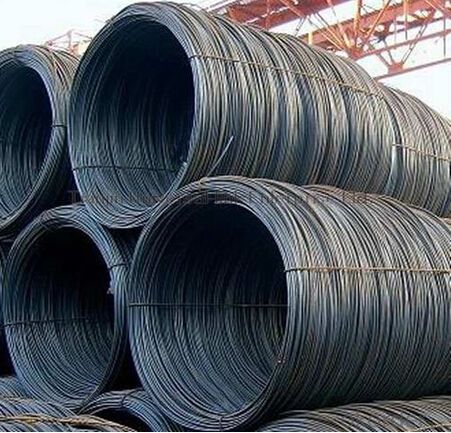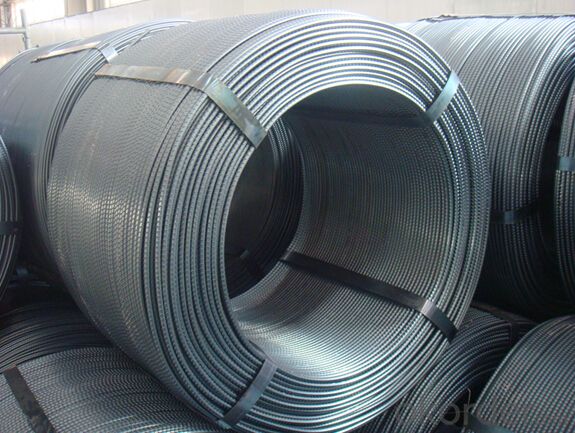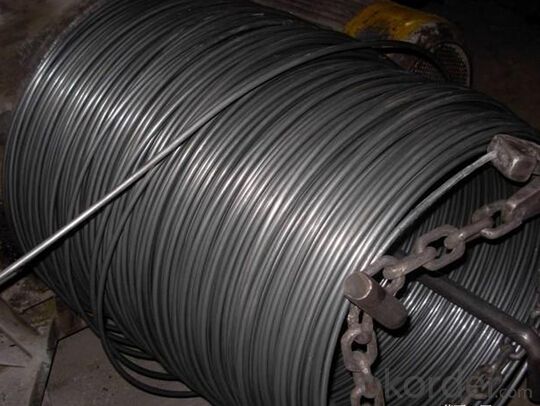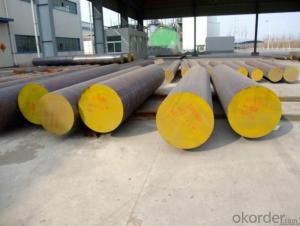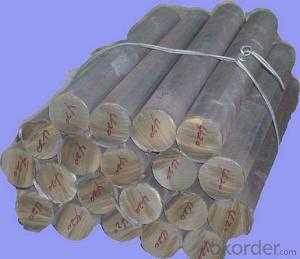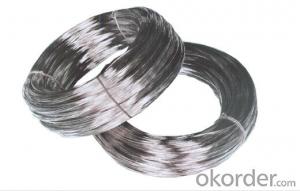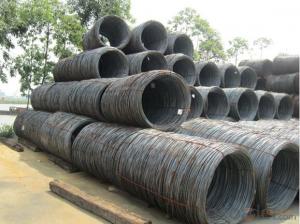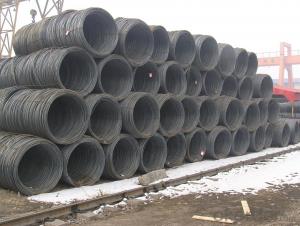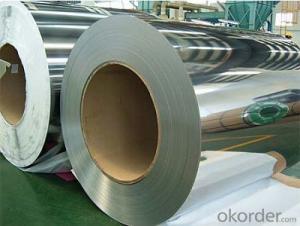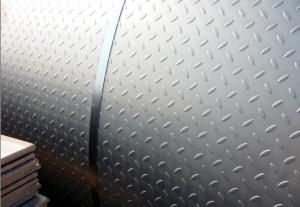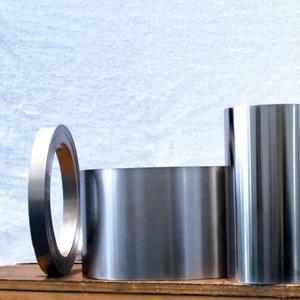Hot-rolled SUS 316 stainless steel wire rod in Coils
- Loading Port:
- Tianjin
- Payment Terms:
- TT OR LC
- Min Order Qty:
- 1 m.t.
- Supply Capability:
- 10000 m.t./month
OKorder Service Pledge
Quality Product, Order Online Tracking, Timely Delivery
OKorder Financial Service
Credit Rating, Credit Services, Credit Purchasing
You Might Also Like
Specification
Type:
Carbon Steel,Spring Steel,Bearing Steel,Gear Steel,Deformed Steel,Stainless Steel,Alloy Steel
Shape:
Steel Coil,Steel Sheet,Steel Wire Rod,Steel Flat Bar,Steel Square Bar,Steel Angle,Steel Round Bar,Steel Billets
Technique:
Hot Rolled,Cold Rolled,Cold Drawn,ERW,Forged,Saw,Extruded,EFW,Spring
Surface Treatment:
Galvanized,Coated,Copper Coated,Color Coated,Oiled,Dry,Chromed Passivation,Polished,Bright,Black,PVDF Coated
Certification:
ISO,SGS,BV,IBR,RoHS,CE,API,BSI,UL
Thickness:
5.5-18mm
Width:
5.5-18mm
Length:
In coils
Outer Diameter:
5.5-18mm
Net Weight:
2m.t.
Packaging:
Seaworthy packaging
Hot-rolled SUS 316 stainless steel wire rod in Coils
Detailed Information of the Hot-rolled SUS 316 stainless steel wire rod in Coils
| Name | Hot Rolled High Carbon Wire Rod |
| Shape | Round Bar/Square Bar/Flat Bar/Plate/Wire |
| Standard | GB/ASTM/SAE/AISI/DIN/JIS/EN/BS |
| Surface Treatment: | Black/Peeling/Polished/Machined |
| Delivery Condition: | Hot Rolled or Forged/Peeled or Black Surface |
| Test | SGS/UT 100% Elements Testing |
| Certificate: | ISO/Mill Certificate |
| Service: | 24 hours online service / |
| more than 20 years trading and manufacture | |
| Quality Assurance: | the third party inspection, such as SGS, BV, TUV…etc. is acceptable |
| Packaging Details: | Seaworthy Packaging or as per customer's packing instruction |
Chemical Composition of the Hot-rolled SUS 316 stainless steel wire rod in Coils
| Material | C %(≤) | Mn % (≤) | P % (≤) | S % (≤) | Si % (≤) | Cr% (≤) |
| 430 | 0.08 | 1 | 0.04 | 0.03 | 1 | 16.00-18.00 |
Company Introduction of the Hot-rolled SUS 316 stainless steel wire rod in Coils
CNBM International Corporation is the most import and export platform of CNBM group(China National Building Material Group Corporation) ,which is a state-owned enterprise, ranked in 270th of Fortune Global 500 in 2015.
With its advantages, CNBM International are mainly concentrate on Cement, Glass, Iron and Steel, Ceramics industries and devotes herself for supplying high quality series of refractories as well as technical consultancies and logistics solution.
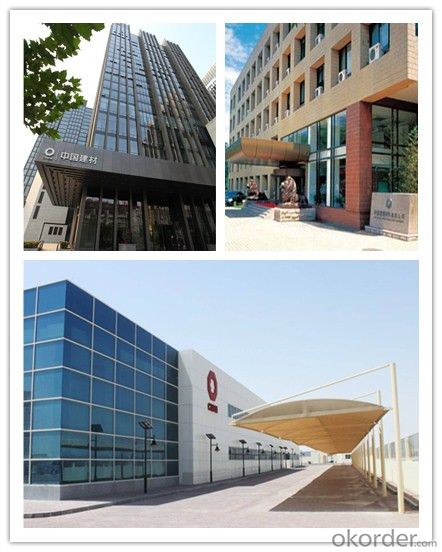
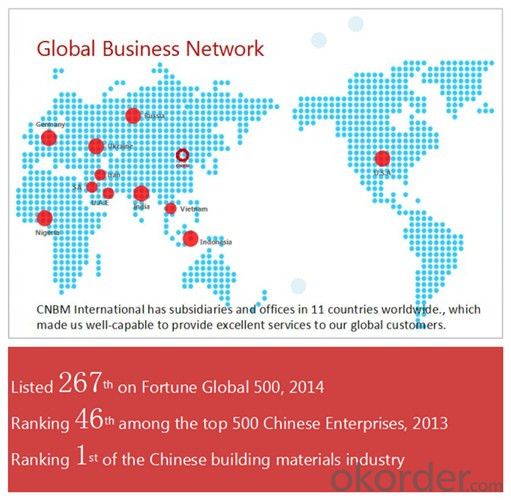
| After-sale service | CNBM provides the services and support you need for every step of our cooperation. We’re the business partners you can trust; you can relax and get on with doing business. |
| For any problem, please kindly contact us at any your convenient time, we’ll reply you in our first priority within 24 hours | |
| Advantages | Industry experience over 20 years. |
| Shipment of goods -More than 70 countries worldwide. | |
| The most convenient transport and prompt delivery. | |
| Competitive price with best service. | |
| High technical production line with top quality products. | |
| High reputation based on best quality products. |
Packaging & Delivery of the Hot-rolled SUS 316 stainless steel wire rod in Coils
| Packaging Detail | Sea worthy packing /as per customer's packing instruction |
| Delivery Detail | 15 ~ 40 days after receiving the deposit |
Products Show
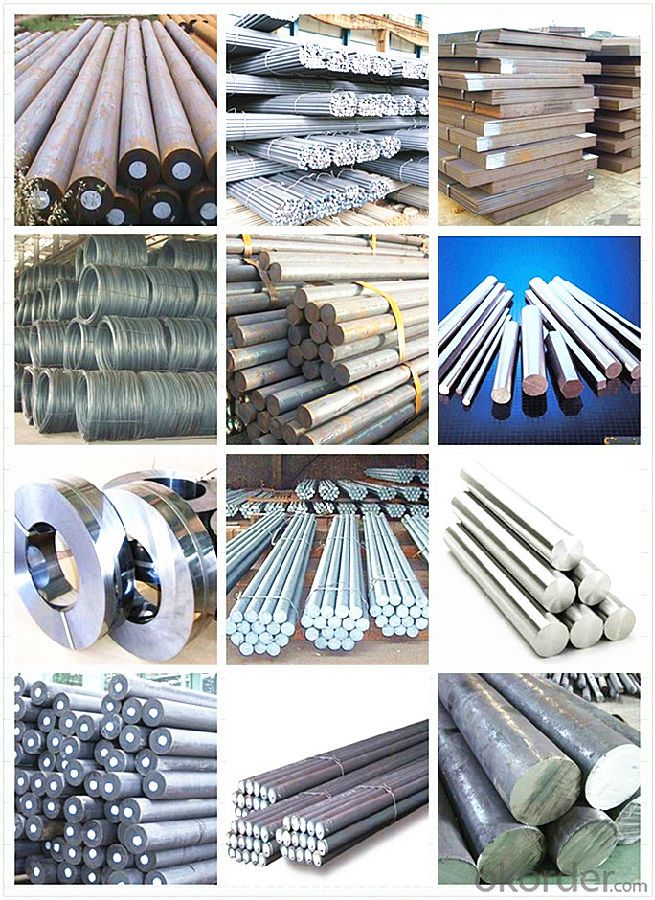
FAQ:
| Are you a trader or manufacturer? | Manufacturer |
| What’s the MOQ? | 3 metric ton |
| What’s your delivery time? | 15-35 days after downpayment received |
| Do you Accept OEM service? | Yes |
| what’s your delivery terms? | FOB/CFR/CIF |
| What's the Payment Terms? | 30% as deposit,70% before shipment by T/T |
| Western Union acceptable for small amount. | |
| L/C acceptable for large amount. | |
| Scrow ,Paybal,Alipay are also ok | |
| Why choose us? | Chose happens because of quality, then price, We can give you both. |
| Additionally, we can also offer professional products inquiry, products knowledge train (for agents), smooth goods delivery, excellent customer solution proposals. | |
| What's your available port of Shipment? | Main Port, China |
| What’s your featured services? | Our service formula: good quality+ good price+ good service=customer's trust |
| Where are your Market? | Covering more than 160 countries in the world |
- Q: What are the different methods of surface texturing for special steel?
- Some of the different methods of surface texturing for special steel include shot blasting, etching, electrochemical etching, laser texturing, and milling. These methods are used to create various patterns, textures, or finishes on the surface of the steel, which can enhance its appearance, improve its performance, or provide better adhesion for coatings.
- Q: What are the magnetic properties of special steel?
- Special steel typically exhibits magnetic properties due to its composition and structure. These magnetic properties can range from weak to strong, depending on the specific type of special steel. Some special steels, such as stainless steel, are generally non-magnetic or weakly magnetic, while others, like certain tool steels, can be highly magnetic. The magnetic properties of special steel are influenced by factors such as the amount and type of alloying elements present, heat treatment processes, and the crystal structure of the material.
- Q: Is special steel suitable for manufacturing cutting tools?
- Yes, special steel is highly suitable for manufacturing cutting tools. Special steel refers to steel that has been specifically designed and processed to possess exceptional properties such as high hardness, toughness, and wear resistance. These characteristics make special steel an ideal choice for cutting tools as they enable the tools to withstand the high stresses and pressures involved in cutting operations. The hardness of special steel ensures that cutting tools can maintain their sharpness for a longer period of time, leading to improved cutting performance and efficiency. Additionally, the toughness of special steel allows cutting tools to resist chipping, cracking, or breaking during use, enhancing their durability and longevity. Furthermore, the wear resistance of special steel ensures that cutting tools can withstand the abrasive forces encountered during cutting operations without significant loss of material or deterioration. This helps to maintain the accuracy and precision of the cutting tools over time. Moreover, special steel can be tailored to meet specific requirements for different cutting applications. For example, high-speed steel (HSS) is a type of special steel that is particularly suitable for cutting tools used in high-speed machining operations. HSS possesses excellent heat resistance and can retain its hardness even at elevated temperatures. In conclusion, special steel is highly suitable for manufacturing cutting tools due to its hardness, toughness, wear resistance, and ability to be customized for specific cutting applications. These properties enable cutting tools to deliver optimal cutting performance, durability, and accuracy.
- Q: What are the common applications of special steel in the manufacturing industry?
- Special steel, known as alloy steel as well, has unique properties and superior performance, making it widely used in the manufacturing industry for various applications. Different sectors benefit from special steel in the following ways: 1. Automotive Industry: Components like engine parts, gears, axles, and crankshafts heavily rely on special steel due to its high strength, durability, and resistance to wear and corrosion. Its exceptional performance in critical automotive applications makes it the preferred choice. 2. Aerospace Industry: In the aerospace sector, special steel is vital for manufacturing aircraft components such as landing gear, turbine blades, and structural parts. Its high tensile strength, lightweight nature, and ability to withstand extreme temperatures ensure the safety and efficiency of aircraft operations. 3. Construction Industry: The construction sector extensively uses special steel for manufacturing structural elements like beams, columns, and reinforcement bars. Its superior strength, ductility, and resistance to external forces guarantee the structural integrity and safety of buildings, bridges, and other infrastructure projects. 4. Oil and Gas Industry: The oil and gas industry relies heavily on special steel for manufacturing pipelines, drill bits, valves, and other equipment. Its high resistance to corrosion, pressure, and extreme temperatures make it suitable for handling the harsh operating conditions encountered in oil and gas exploration, extraction, and transportation. 5. Tool and Die Making: Special steel is commonly employed in tool and die making due to its excellent hardness, toughness, and wear resistance. Various industries, including automotive, aerospace, and consumer goods manufacturing, utilize special steel for manufacturing cutting tools, molds, dies, and punches. 6. Medical Industry: The medical industry utilizes special steel for manufacturing surgical instruments, implants, and medical devices. Its biocompatibility, corrosion resistance, and sterilizability ensure the safety and effectiveness of medical tools and implants. These examples represent only a fraction of the applications of special steel in the manufacturing industry. Its versatility, reliability, and performance contribute to the advancement and growth of various manufacturing processes in numerous sectors.
- Q: How does special steel contribute to the metalworking industry?
- Special steel plays a crucial role in the metalworking industry by providing enhanced properties and performance that regular steel cannot achieve. It contributes to the industry in several ways: 1. Improved Strength and Durability: Special steel is manufactured with specific alloys and composition, making it stronger and more durable than regular steel. This enables it to withstand high temperatures, heavy loads, and extreme environments, making it ideal for applications in industries such as aerospace, automotive, and construction. 2. Enhanced Corrosion Resistance: Special steel is often designed to have superior resistance to corrosion compared to regular steel. This makes it highly suitable for applications in marine, chemical, and oil and gas industries, where exposure to harsh environments and corrosive elements is common. 3. Increased Hardness and Wear Resistance: Special steel can be engineered to have higher hardness and wear resistance, making it ideal for manufacturing cutting tools, dies, molds, and other components that require prolonged usage and resistance to wear and tear. This contributes to increased productivity and efficiency in metalworking processes. 4. Precision Machining: Special steel offers excellent machinability, allowing for precise shaping, drilling, and cutting. This enables manufacturers to create complex and intricate designs with ease, resulting in high-quality finished products and components. 5. Customization and Flexibility: Special steel can be tailored to meet specific requirements, allowing for customization and flexibility in design and application. Manufacturers can choose from a wide range of special steel grades, each with its unique properties, to suit their specific needs. Overall, special steel significantly contributes to the metalworking industry by providing enhanced strength, durability, corrosion resistance, hardness, wear resistance, machinability, and customization options. It enables the industry to manufacture high-quality products, improve efficiency, and meet the demanding requirements of various sectors.
- Q: How does spring steel maintain its elasticity?
- Spring steel maintains its elasticity due to its unique composition and manufacturing process. It is made from a specific type of high-carbon steel that undergoes a specialized heat treatment called quenching and tempering. This process involves heating the steel to a high temperature and then rapidly cooling it in water or oil, followed by reheating to a specific temperature and allowing it to cool slowly. This heat treatment creates a fine-grained microstructure in the steel, which gives it the ability to withstand repeated bending or twisting without permanently deforming. Additionally, the high carbon content in spring steel enhances its strength and resilience, allowing it to return to its original shape even after being subjected to significant force or pressure.
- Q: How is special steel used in the production of pressure vessels?
- Special steel is employed in the manufacturing of pressure vessels because of its distinctive characteristics that make it suitable for enduring high-pressure environments. Pressure vessels, which are containers designed to hold gases or liquids at a significantly different pressure than the surrounding atmosphere, frequently find application in industries such as oil and gas, chemical, and power generation. To guarantee the safety and dependability of these containers, the use of special steel in pressure vessel production is essential. Special steels, including carbon steels, stainless steels, and alloy steels, provide improved mechanical properties, high strength, and exceptional resistance to corrosion. These attributes are crucial for withstanding the extreme pressure conditions experienced by pressure vessels. One of the primary roles of special steel in pressure vessel production is to provide resistance against internal pressure. The steel must possess the ability to endure the force exerted by the vessel's contents without deforming or rupturing. Due to the high strength and toughness of special steels, they are capable of handling these pressures, thereby ensuring the vessel's integrity and preventing catastrophic failures. Additionally, special steel plays a vital role in preserving the structural integrity of pressure vessels. These vessels encounter various external loads, such as wind, seismic forces, and thermal expansion. The superior mechanical properties of special steel enable it to withstand these loads without significant deformation or failure, thereby ensuring the structural stability of the pressure vessel. Moreover, special steel's resistance to corrosion is crucial in pressure vessel production. Pressure vessels frequently contain corrosive substances, and the corrosive environment can lead to material degradation over time. Special steels, particularly stainless steels, offer excellent corrosion resistance, thus minimizing the risk of material deterioration and prolonging the vessel's lifespan. In conclusion, special steel is used in the production of pressure vessels due to its high strength, toughness, and corrosion resistance. These properties enable the steel to endure high-pressure conditions, maintain structural integrity, and prevent failures related to corrosion. By utilizing special steel, manufacturers of pressure vessels can ensure the safety, dependability, and longevity of these critical containers.
- Q: How does special steel contribute to improving product resistance to environmental factors?
- Special steel contributes to improving product resistance to environmental factors in several ways. Firstly, special steel alloys often have enhanced corrosion resistance, protecting the product from damage caused by exposure to moisture, chemicals, and other corrosive substances present in the environment. Additionally, special steel can offer improved strength and durability, enabling the product to withstand harsh conditions such as extreme temperatures, high pressure, or mechanical stress. Furthermore, special steel can exhibit excellent fatigue resistance, ensuring that the product maintains its structural integrity even after prolonged exposure to cyclic loading or repetitive stress. Overall, the unique characteristics of special steel make it a valuable material for enhancing the resistance of products to various environmental factors, ultimately prolonging their lifespan and reducing maintenance costs.
- Q: How does special steel perform in terms of fatigue resistance?
- Special steel has excellent fatigue resistance due to its unique composition and manufacturing process. It is specifically designed to withstand repeated loading and stress, making it highly resistant to fatigue failure. This property ensures that special steel can endure prolonged use and maintain its structural integrity, even under demanding conditions.
- Q: Can special steel be used in the manufacturing of sports equipment?
- Yes, special steel can be used in the manufacturing of sports equipment. Special steel, such as carbon steel or stainless steel, provides durability, strength, and corrosion resistance, making it suitable for various sports equipment like golf clubs, tennis racquets, or bicycle frames.
Send your message to us
Hot-rolled SUS 316 stainless steel wire rod in Coils
- Loading Port:
- Tianjin
- Payment Terms:
- TT OR LC
- Min Order Qty:
- 1 m.t.
- Supply Capability:
- 10000 m.t./month
OKorder Service Pledge
Quality Product, Order Online Tracking, Timely Delivery
OKorder Financial Service
Credit Rating, Credit Services, Credit Purchasing
Similar products
Hot products
Hot Searches
Related keywords
